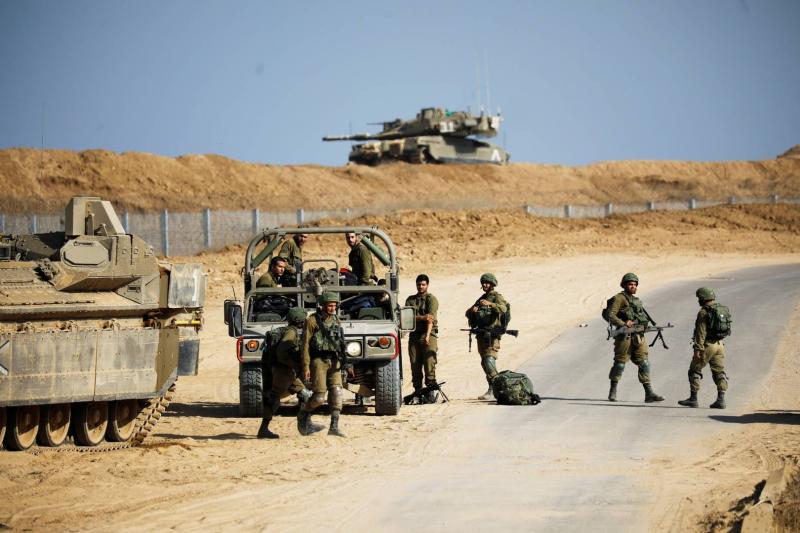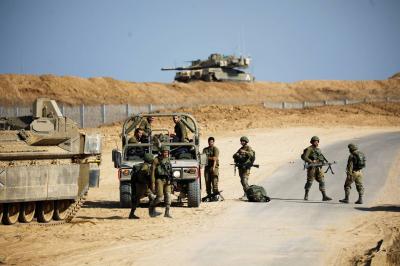The influential American magazine "Foreign Affairs" featured multiple articles in its March/April issue reviewing events in the Middle East, particularly what is happening in Palestine. Among them are two noteworthy articles: the first titled "The Return of the Two-State Solution Idea," written by veteran Martin Indyk, a former U.S. ambassador to Israel and a key participant in the Clinton administration that crafted the first meaningful agreement between Israelis and Palestinians. The second article is titled "Only the Middle East Can Reform the Middle East," authored by researchers Dalia Khat and Sinan Yaqli, both Middle East scholars at U.S. research institutions, alongside another article titled "Israel's Self-Destruction" by Aluf Benn, editor-in-chief of the Israeli newspaper "Haaretz," summing up that "prosperity is impossible without peace with the Palestinians."
The magazine's focus on the two-state solution indicates that the Palestinian issue has imposed itself on the agenda of discussions among political circles concerned with war and peace globally. The topic's significance comes from what Western circles term "the unjust killing of Palestinians in Gaza" or "the prolonged suffering of Palestinians from unjust oppression," which are softened expressions for the ongoing massacre occurring before the world. Public opinion worldwide is no longer concerned with what "Hamas" has or hasn’t done, nor with the skirmishes involving the Houthis or Iraq's "Popular Mobilization" or other smaller players; the focus is on a more important subject: "How many Palestinians can Israel kill? And how long can these massacres be tolerated?"
The scene in the region is clear; the Iran-Israel dossier has become saturated. After Iran delivered a significant blow to Israel, "Iran's supporters inflated the impact," while Israel and its allies downplayed it. Conversely, Iran minimized Israel's retaliatory strikes, which were exaggerated by the Israelis and their allies. The ultimate outcome is that both Iran and Israel have become convinced that a "war between them" is impossible, as neither side knows how or when it would end! Both have revealed their deterrent capabilities, leading to the conclusion that neither has "the stomach to digest an expensive long war."
The question remains: Will Iran continue to support its arms in the Arab neighborhood to launch skirmishes that threaten peace? This is not an Israeli concern as long as it stays within what is known as "rules of engagement." However, the lesson is that those who exceed those rules will face consequences, even if they are Iranian! The lesson here is "If you return, we will return."
What about a solution originating from the Middle Eastern countries regarding the Palestinian issue? The second article posits that the United States, at this historical juncture, cannot do much diplomatically. With "upcoming elections and a war in Ukraine," it will only intervene if there is a significant attack on any of its forces in the region, which is a weak likelihood. However, it simultaneously does not abandon Israel, providing military and financial support, and it is difficult to envision a broader role for America. The longer the war in Gaza continues, the more opportunities for its expansion arise.
The article goes on to discuss the expected role of Arab diplomacy which has begun taking meaningful steps. It highlights several issues, including resolving disputes with Qatar, communicating with Iran to cool competition, and opening relations with the East—not only economically but also politically, especially concerning China, and balancing relations with Russia. All this has introduced new players into the Middle Eastern arena.
Thus, we find Arab Middle Eastern countries opening various regional doors away from reliance on what was previously known as American security. Regional states have been active in other initiatives, such as participating in the Baghdad Cooperation Conference in 2021, and then in Amman in 2022, with participants from Tehran and Ankara, and also in the Eastern Mediterranean Gas Forum involving Cyprus, Egypt, Israel, Greece, Jordan, France, and representatives of the Palestinian Authority. This culminated in the "12U2," a group of countries that agreed in 2021 to address global challenges and enhance economic opportunities among its members, including India, Israel, and the UAE, along with what was known as the Abraham Accord between Israel and several Arab nations. All these steps signify that Arab nations seek to forge partnerships for security, with or without the United States.
The article states that theoretically, the events in Gaza after October 7, 2023, may have frozen this path. However, the reality is that beyond Gaza, the people in the region, including Israel, must energize these pathways on the premise that wars and conflicts will only lead to devastation for the entire region and that peace is the way forward. The proposed plans, especially the Arab (Egyptian-Qatari) initiative aimed at achieving a ceasefire in Gaza, followed by active searches for peace leading to an independent Palestinian state, garner support from Arab countries and complement the Arab initiative originally presented by Saudi Arabia in 2002, outlining the path toward peace and security.
The author notes that Netanyahu's right-wing government opposes any peace plans that recognize Palestinian rights, and progress in this area can only be achieved if Israeli political forces come to terms with moving beyond the notion of domination and imposed force. Gaza's events have demonstrated, despite the significant casualties, that military power will not yield the desired solution sought by the Israeli right. Perhaps the catastrophic Gaza war has awakened all parties from the illusions that dominated them and fueled their public, illusions that are not exclusive to one side.
Perhaps now there's a need to consider a forum for regional security involving all parties, as it has become evident that the conflict, as it has proceeded so far, is a zero-sum game that disappears only to reemerge from the same parties or new ones bearing new illusions.
In conclusion: humanitarian law... extremism breeds extremism!




